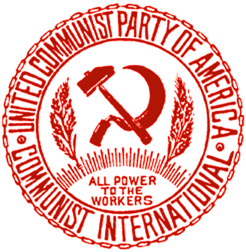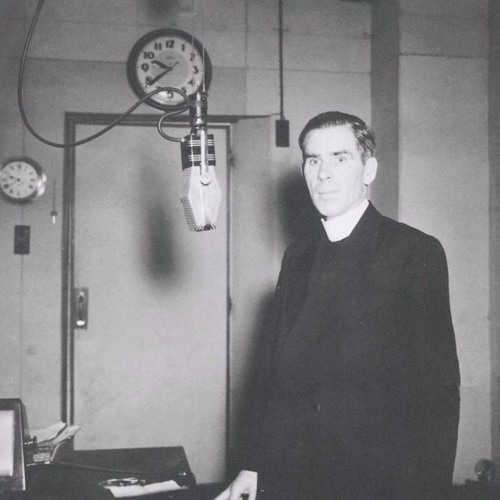Robert L. Frank recounts the conflict between
Catholics and communism in the United States in his article, “Prelude To Cold War: American Catholics
And Communism.” In this article, Robert L. Franks informs us how American Catholics
were on the forefront in the battle against the communist uprising in the
1930s. America did not perceive the threat of communism in their homeland
during this time, but American Catholics learned immediately that there were
already thousands of members nationwide who were spreading propaganda.
Moreover, Robert L. Frank notes that the communist threat was also an
opportunity for the Catholic Church to prove to America that they were in
accord with democratic values. Catholics proved that they agreed with American
values by denouncing communism using doctrine.
Furthermore, Robert L. Frank also tells us how
Catholics learned to denounce communism using doctrine. Pope Pius XI “echoed
the account of Leo XIII in Rerum Novarum of the origins of socialism: "the
way had already been prepared" for communism "by the religious and
moral destitution in which wage-earners had been left by liberal economics.”[6]
American Catholics followed their pope by learning how to speak about the
undemocratic nature of communism. They explained that communism stripped people
of their rights, and that its aim was to banish everything that came from God
like liberty and freedom. However, Catholics were viewed as supporters of
fascism by Americans because they sided with Franco during the Spanish War, so
“American Catholics developed an anti-fascist apologetic that defined fascism
in terms of the ultimate evil -- communism.”[7] The evil of the Loyalist
government was greater than that of the fascists. That is why Catholics sided
with Franco, but they needed to explain to America that they were not supporters
of fascism. In 1937, “Monsignor Sheen urged that "the choice before the
world is not Communism or Fascism, for the two are not mutually exclusive; the
choice is rather between a philosophy of life which rejects human dignity and a
philosophy of life which destroys it."”[8]
I believe that the Catholic Church did good in
defending the United States of America from the threat of communism in the
1930s. They proved themselves to be defenders of liberty, justice, and democracy
to the rest of the world. Because Catholics based their denouncement of
communism on doctrine, they demonstrated that Catholicism was in accord with
American values. I do not believe, however, that they defended America from
communism so they could fit in with the rest of America. I believe that the
love of God moved them to defend their brothers and sisters who did not know
about the communist threat. They moved quickly to inform everyone about the
arrival of communism in the United Stated, but not all were convinced. We can
still perceive the disbelief and denial of the many things that Catholics
proclaim in modern- day America. We see the denial of the existence of Satan,
for example, by many non-Catholic Americans in our day. We see the denial of
sin and relativism as a popular view as well. I believe that the Catholic
Church is still a foreigner in the United States. The words of Bishop Francis
Noll can still be applied today: “Americans are asleep to the danger .... They
are wide open to attack"[11] Modern-day America does not perceive that
they are in grave danger due to so much evil. Moreover, many still see
Catholics as foreigners because they are not like the rest of society; many do
not like the idea of religion and/or strict moral codes. Catholics do not need
to be informed by the Society of Jesus again to learn that their brothers and
sisters are in danger. The Church is aware. Catholics need to learn to
integrate themselves with modern society to prove that they are allies; they
need to prove that they are for love, peace, and happiness because that is what
modern-day Americans value. Modern-day Catholics need to learn to proclaim the
Gospel in new ways like the American Catholics had to in 1930s America to protect
the nation from the threat of evil.
.
1. Frank, Robert L. "Prelude To Cold War: American Catholics And Communism." Journal of Church & State. Winter 1992, Vol. 34 Issue 1.
2. Ibid.
3. Ibid.
4. Ibid.
5. Ibid.
6. Ibid.
7. Ibid.
8. Ibid.
9. Ibid.
10. Ibid.
11. Ibid.


No comments:
Post a Comment